Life Beginning…. Story of a Sudanese survivor who was sold in the slave market in (Khor Jahannam)!!
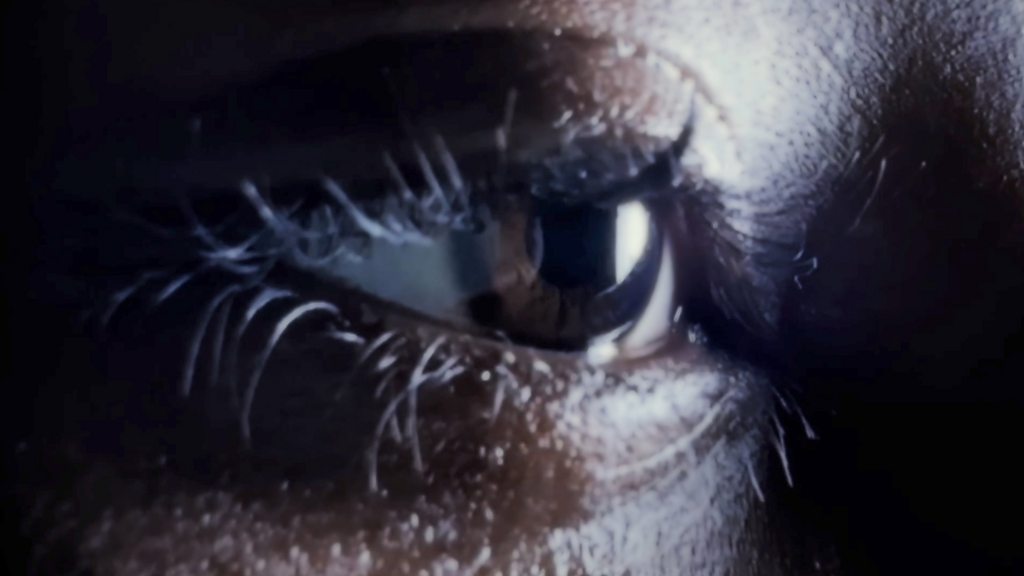
Investigation: Hanan Al-Tilib
Amal stood behind her bedroom window, looking outside, anticipating the dawning of the day. Her journey would not be easy. Her exams had ended a few days earlier, but after she had packed her bags to travel to her family residing in an Arab country, war broke out on the day of her flight. The airport was closed, leaving her and a group of female students stranded in their dormitory in Khartoum downtown.
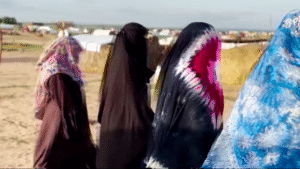
Life came to a standstill, and the capital was transformed into chaos. Everyone was in a state of panic and fear.
Some fled abroad, escaping the relentless shelling by the rebel militia, while others searched for a safe place away from the sounds of ammunition and the smell of bullets that pervaded the air. The streets were closed off and filled with rebels, and shocking news began to reach them about the militia’s transgressions against unarmed civilians.
Therefore, they preferred to remain in the dormitory rather than go out into the streets due to the heavy gunfire.
Fearing militia attacks, they sent out distress calls and waited for someone to evacuate them.
Amal’s Story:
Amal was able to contact her family, and her uncle promised her that he would come that morning to pick her up and travel by land to Port Sudan, and from there to her parents in that Arab country. Amal did not move and remained by the window, waiting for him impatiently. Suddenly, she felt a tightening in her chest and a lump in her throat, and tears streamed from her eyes. She cried as she remembered the moments of her arrival in her country, Sudan. Happiness overwhelmed her; finally, her dream of studying at a Sudanese university would come true.
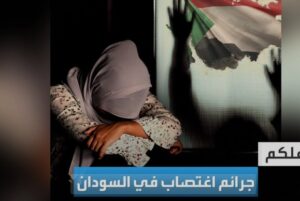
Behind that dream were the stories her older brother used to tell about studying at the university, about academic trips, and visits to the states of Sudan. This was the reason behind her insistence on studying at the university in Sudan, despite her parents’ fears due to her young age. However, she attended to study, and her happiness was even greater because she would be staying with her grandmother, whom she loved very much. It was an academic year full of everything new, and she was persevering, hardworking, and happy to be in Sudan until her grandmother passed away. With her loss, sadness and pain filled her life, and she could not bear that separation, and every corner of the house reminds her of her, so she moved to the girls’ dormitory. There, she found a group of young girls with similar circumstances, far from their families, whether they were within the country in distant states or abroad. They lived as sisters, sharing housing and food and supporting each other.
The Kidnapping:
Her gaze wandered, and her tears flowed profusely. She burst into tears until the sound of her sobs woke her friend in the room, who began to calm her down. But suddenly, Amal fell silent and tried to silence her with hand signals.
Something strange was happening outside. Amira approached her cautiously, and they began to observe what was happening outside. The sun hadn’t risen yet, but the vision was clear. A group of vehicles stopped in front of the four-story dormitory building, and a group of heavily armed rebels got out. Others spread out, surrounding the building from all sides. They didn’t storm the main gate, as if waiting for someone. A group of trucks then approached, and then militia elements stormed the gate in their armored vehicles, firing bullets in the air, and stormed the building.
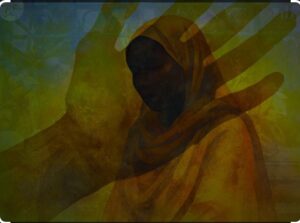
Chaos spread throughout the place. The students were asleep and woke up to the sound of bullets and the demolition of the gate. Even those who had woken up for the dawn prayer were shaken by the shock. They were screaming in unison, not comprehending what was happening. A group of rebels filled the place. They entered all the rooms and started forcing them to leave and get into trucks. Some of them fainted from the shock. The supervisors (the dormitory administration) gathered their courage and tried to dissuade them from taking them out in those clothes and to let them take their belongings, thinking that they wanted to turn the dormitory buildings into a military barracks. However, they did not pay attention to their talk or their pleas. Instead, they beat them severely and fired bullets under their feet and forced them into the trucks. As for the students who tried to resist and escape, they chained them and threw them into the trucks.
As if She Was Dreaming:
It all happened incredibly quickly. Amal didn’t recover from the shock. She felt as if she was dreaming or watching a horror movie. The truck looked like a prisoner transport vehicle, but it was several times larger. They closed the door behind them with bolts and locks. For a moment, Amal felt suffocated. The truck was crowded and dark, and the only sound she could hear was moaning and crying. She tried to stand on her feet, but she couldn’t. There was a body lying at her feet. One of them was unconscious from the severity of the beating. Amal tried to scream, but her throat became stiff and the scream couldn’t come out due to the severity of the dryness, and she fainted.
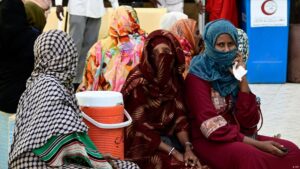
Khor Jahannam (Hell Stream):
Amal woke up to the sounds of a loud fight and an exchange of gunfire that continued for a while, then one of the parties fell silent. A cold breeze blew on her small body. It was pitch black. She couldn’t make out what had happened, but it seemed they had opened the truck door. Silence reigned supreme, but she knew everyone had woken up and were hoping that the victor was the army that had come to rescue them. However, they heard them arguing and how one of them had opened the truck and taken out a group of girls. They agreed that the division would take place at Khor Jahannam after all the trucks had arrived. This made them lose heart, as it had become clear that this was a kidnapping operation and that they were somewhere, but far from any populated area. They were now in the middle of the desert.
Suddenly, a group of girls ran out of the truck screaming, so they opened fire on them. The others were taken to the truck after being beaten and chained. Then they closed the truck and she fainted again. Amal woke up feeling like she was drowning, but they had reached their last stop (Khor Jahannam) and they were pouring water on them to wake them up.
They got them out of the truck and offered them water and food. They refused to even take a sip of water, so a new phase of oppression and humiliation began. Anyone who refused to eat or drink would have her clothes stripped off. They quickly ate and drank water so as not to be subjected to this humiliation. After that, they took them to a square where people gathered. It looked like a market. They stood in a line, and men began to gather around them. They realized that this was a slavery market and the auction has begun after the division was completed and the goods offered in the auction…
The world became dark in Amal’s eyes and the earth spun around her and she began to repeat “Oh Allah” at the top of her voice. Ameera was gripping her hand tightly. Everyone stood in front of Ameera, for she was extremely beautiful, but no one knew Ameera. Her family used to call her the princess and sometimes the pearl, for she was as precious as pearls, as her father and brothers described her. Amal looked at her and the people around her, but blood was flowing from her mouth. She began to bleed from her mouth and nose. Amal froze, for she knew that Ameera had a stomach ulcer and now, from the intensity of the humiliation, her insides were torn apart. Amal grabbed her while her body was collapsing and Ameera fell to the ground, a lifeless corpse. Her pure soul left that pure body forever.
Slave Auction:
Amal screamed and fell beside her. She felt painful blows to her body and head, but she heard a voice asking her seller how much she was selling for. He replied, “Three billion pounds.” The buyer agreed, and Amal lost consciousness. She didn’t know how long she had been unconscious, but she found herself surrounded by the family of the good man who had bought her to save her, his daughters, and his wife, who were caring for her.
This is the story of one of the survivors of the hell of Al-Dagalo militia. She was kidnapped from a female dormitory in central Khartoum, along with more than 400 female students from other dormitories. They were then put on display and sold in the slave market in Khor Jahannam, on the Sudanese-Chadian border. This is not the only heinous crime committed by this treacherous militia against the free women of Sudan. They have also reached the level of debauchery, raping girls, minors, and married women. Even elderly women have not been spared. Sometimes, these crimes are committed under the noses of their families, in all the areas they have entered without them blinking an eye.
These violations also include the marriage of minors at gunpoint, sometimes marrying a girl to more than one husband, in addition to cases of gang rape and physical torture.
The Beginning of Life:
Numerous initiatives and official and civil society organizations have called for addressing this sensitive issue, including the Beginning of Life Organization, which seeks to free captive and abducted female prisoners, return them to their families, and address the consequences of their abduction. The organization’s chairman, Al-Tayib Abdel-Wahab, and Sheikh of the Khalwatiyya Sammaniya Tayyibiyya Al-Garbiyya Sect, said that the organization was established to truly mark the beginning of life for those who have lost everything, those who were kidnapped, raped, imprisoned, and all the victims of this war. He explained that the organization seeks to return and reunite all missing women with their families. This is achieved through contacts made after identifying their locations in the Darfur region and some neighboring countries. This is done through notables in those areas, including Sufi leaders, native administrations, communities in those countries, and counterpart organizations operating in those regions.
He said that efforts are ongoing to bring them back. He added that the organization includes experts and specialists in various fields, especially since this type of abuse is considered a transgression that affects not only the individual but also the woman, her immediate family, and her extended family, particularly that Sudanese society is traditional, religious, and conservative. Therefore, it has become clear that the militias are using sexual violence as a war tactic and a stab at society and its deeply-rooted values.
He said that treatment is complex and requires time, as the victim is surrounded by societal stigma. Likewise, newborns who are victims of these attacks are also stigmatized, and society’s acceptance of them takes time. He stated that the organization, through its specialized secretariats, has developed solutions through Islamic fatwas (religious edicts) for victims and newborns, such as abortion and childbirth. It also raises awareness among communities and families through mosque pulpits, imams, preachers, and psychologists, and participates in providing assistance to them, especially since the state has established shelters in safe states to shelter survivors and victims of violations and violence. It also provides care to families affected by these violations through productive projects to alleviate their suffering and restore their health.
The Silent Crime :
The Chairman of the Organization’s Board of Trustees, Ahmed Al-Mufti, emphasized that the crime of rape and sexual violence is a silent crime that thrives on our silence and is shrouded in social stigma. It is a crime that often goes unpunished, and victims are reluctant to report it immediately. However, what the militia has committed constitutes a war strategy and systematic action, and is an integral part of the political project and demographic change. He stated that the organization coordinates with human rights organizations and activists to address these crimes professionally and in accordance with the rule of law, to punish the perpetrators in a manner commensurate with the seriousness of the crime and violations.
There is no doubt that the violations and attacks carried out by Al-Dagalo’s militia are among the most horrific in human history. Unmatched by what the Serbs did to Muslims in Bosnia, the toll of these violations is documented with numbers, photos, and confessions from criminals who documented their actions against the Sudanese people, which went beyond belief. International and regional reactions to what is happening in Sudan remain extremely modest compared to the magnitude of the reality experienced by the Sudanese people and the victims of that war.
The pain, tragedies, and psychological trauma (albeit invisible) still carry deep scars and long-lasting effects on this society.
As for Amal, although she survived, she has not and will not forget her comrades who remain in captivity. Her inner voice says that stories of history, even if they are not so distant, are not told to children to sleep, but to heroes to awaken.
